 Today we have the pleasure of getting to know Clare Ashton a little bit more. She’s was so kind to answer our nosy questions.
Today we have the pleasure of getting to know Clare Ashton a little bit more. She’s was so kind to answer our nosy questions.
Clare Ashton is the author of After Mrs Hamilton, Penance and The Dildo in the Kitchen Drawer.
So, welcome, Clare, and thank you for answering our questions.
Let’s start with something easy – some warm-up questions:
Coffee or tea?
Oooo, a coffee please. Thank you very much. And one of those spicy biscuits if you have one.
What puts you in a bad mood?
Tidying, washing up, doing the laundry, tidying again. I have a two-and-a-half-year-old toddler—so there’s a lot of mess. Although it does make me smile when I find potatoes in the washing machine and other random arrangements.
If you had a superpower, what would it be?
To magic house-work away – Super Maid! Amazing Cleaning Woman! Or the sponsored version Cillit Bang Mam.
Or the ability to bestow world peace, clearly.
Where is your favorite place you’ve ever traveled to?
The back route from home to Coventry is a revelation and beautiful. God-awful place when you get there, though. In contrast, Kynance Cove in Cornwall, in a quiet moment looking out over the Atlantic, is where my brain goes to when I close my eyes and think of calm and comfort. Pain in the arse to get to, however.
Favorite chocolate?
Lindt. Yummy.
What would you do if you won the lottery?
Retire! And write the whole time that I wasn’t spending with the kids. And buy a flat in London and a cliff-top house in Cornwall. Both places are thoroughly ingrained, and those settings reoccur in my writing frequently.
I love the slices of history you find in London, from houses that survived the Great Fire of London to the Gherkin. Walk down a central street and you are in a world-class financial hub. Turn a corner and down an alleyway overhanging with timber-framed houses and you’re in a Sarah Water’s novel.
And now on to the writing-related stuff:
How many years have you been writing now, and how did you come to it?
I started in my twenties when I was surrounded by boys as housemates. They were so  thoroughly underwhelmed with my stories of strong female characters that I gave up for a while. In my thirties, I had an idea for a novel (which turned into After Mrs Hamilton) which I couldn’t let rest.
thoroughly underwhelmed with my stories of strong female characters that I gave up for a while. In my thirties, I had an idea for a novel (which turned into After Mrs Hamilton) which I couldn’t let rest.
I wrote the first couple of chapters in secret until my partner said “what are you up to?” When she read them, she was very surprised. “Oh, you can really write. I mean this is like a proper book.” It was the encouragement I needed and I haven’t looked back, and it’s something my partner regrets whenever my head is in the clouds thinking of a story and I don’t listen to her.
Tell us a bit about After Mrs Hamilton and your new book
After Mrs Hamilton was a story that I wanted to read. I wanted a book that was a page-turner, thoroughly British, with twists and turns of a good mystery but with steaming sex with an older irresistible woman too, all hopefully well written enough so that you don’t need to feel too guilty about indulging in it.
It features a very loveable character called Clo, a call girl, whose life has taken a wrong turn, two of her friends who are thrown together by circumstance and whose lives will never be the same, the biggest earth-moving love of someone’s life I could imagine, and the perfect mid-fifties woman based on a combination of Catherine Deneuve, Fanny Ardant, and Kristin Scott Thomas. All of their stories are entwined.
It also has some controversial issues and elements, but, so far, I think I’ve got away with it. It won a Goldie award, which made me grin like an idiot for weeks.
award, which made me grin like an idiot for weeks.
After Mrs Hamilton and my first novel, Pennance, are very intense emotional novels with rollercoaster highs and lows. So for a bit of a break, I’ve written a short story with a bit of black humour and slapstick. It’s called The Dildo in the Kitchen Drawer—a short story of paranoia, slippery fingers and recalcitrant dogs. I’ve had some great comments on it, thankfully.
Why do you write? What does it mean to you?
Even when I wasn’t writing fiction, I still loved writing letters or short articles. I’m a consummate introvert, so writing is definitely an outlet for me.
How long does it take you to write a novel?
Flipping ages. I wish I was one of those people who could write several thousand words a day.
I suppose that’s down to a form of verbal constipation. And as such, laxatives like alcohol work wonders. Although you can guess the next part of the analogy when applied to what comes out.
How much time per week do you spend writing?
Varies enormously. I’m one of those writers who does an outline before writing. So a lot of my writing time is spent staring into the middle distance, thinking of plots (I’d like to say looking thoughtful too, but it’s more often with my mouth slightly open as if about to dribble.)
When and where do you write the most?
Whenever my son sleeps.
How would you describe yourself?
Generously.
How much of yourself is in your characters?
Less than some people think, more than I’d like to acknowledge (even to myself).
Of course, my time as a high-class escort was vital for writing After Mrs Hamilton (Mum—this is a joke).
I also use bits of character and traits from everyone I know and people I see in films. They get mushed together, driven round the block a few times, and then they come alive as distinct characters for me.
What do you find the most challenging part of writing?
Getting those fecking words out.
What are you reading right now?
Robert Galbraith’s The Cuckoo’s Calling. I’m enjoying it very much. I love the detail and flavour of her characters. Slow, though. Not one for if you want your crime to happen at break-neck speed.
What do you think makes a good romance?
Don’t know. I don’t know what the formula is. But as long as it prepares the ground and characters for that Gotcha moment—whether it’s a laugh or a moment of overwhelming sadness.
Chris Paynter’s book, Survived By Her Longtime Companion, had it (that moment when Daphne collects the award especially). And in the film When Harry Met Sally when the protagonists argue and Harry shouts at her:
“I love that you get cold when it’s 71 degrees out. I love that it takes you an hour and a half to order a sandwich. I love that you get a little crinkle above your nose when you’re looking at me like I’m nuts. I love that after I spend the day with you, I can still smell your perfume on my clothes. And I love that you are the last person I want to talk to before I go to sleep at night. And it’s not because I’m lonely, and it’s not because it’s New Year’s Eve. I came here tonight because when you realize you want to spend the rest of your life with somebody, you want the rest of your life to start as soon as possible.”
Oh dear. Beginning to tear up…
What advice would you give new authors?
Listen to someone when they tell you something’s not working, but listen to yourself about how to fix it.
Someone who read one of my early drafts was adamant about how the ending didn’t work and that it definitely needed to be changed. Knowing the story better and what the themes and aim of the work was, I changed several elements of the story so that the ending rang true and was better prepared for. The reader liked what I did too.
Of course, there is the caveat of “don’t follow rules, not even this one”.
What are you working on right now?
I can’t decide between several stories at the moment. I’m thinking through the plots of a couple and then seeing which grabs me most strongly. I’m tempted by a light funny romance, but then there is that story that keeps nagging at me, and that’s a very dark tale….
Thank you for your interesting answers. It was great having you here.
Astrid Ohletz
Publisher


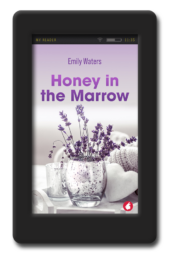 Honey in the Marrow by Emily Waters
Honey in the Marrow by Emily Waters 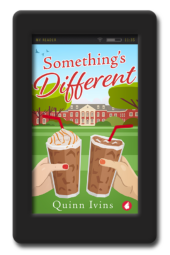 Something's Different by Quinn Ivins
Something's Different by Quinn Ivins 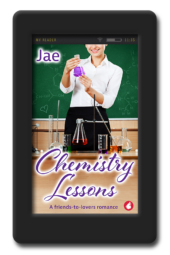 Chemistry Lessons by Jae
Chemistry Lessons by Jae 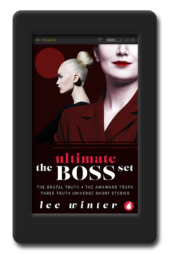 The Ultimate Boss Set by Lee Winter
The Ultimate Boss Set by Lee Winter 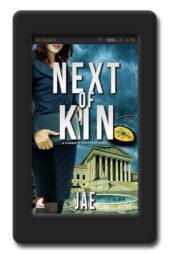 Next of Kin by Jae
Next of Kin by Jae 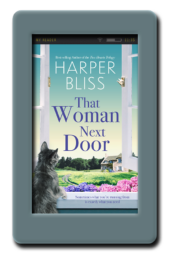 That Woman Next Door by Harper Bliss
That Woman Next Door by Harper Bliss 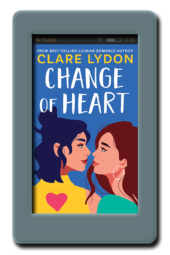 Change of Heart by Clare Lydon
Change of Heart by Clare Lydon 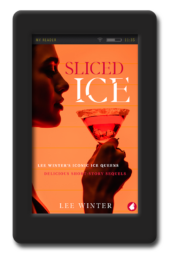 Sliced Ice by Lee Winter
Sliced Ice by Lee Winter 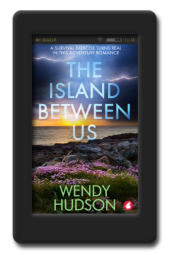 The Island Between Us by Wendy Hudson
The Island Between Us by Wendy Hudson 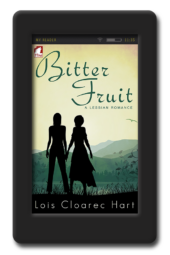 Bitter Fruit by Lois Cloarec Hart
Bitter Fruit by Lois Cloarec Hart
Great interview and I loved the books, Clare. Thanks for sharing your imagination with us.
Intelligent and humerous but not smart-arse replies; a good model for yet-to-be-interviewed authors to study before eagerly filling their gobs with their feet! And informative but never dull. Nice one, Tig.
[…] http://ylvapublishing.wordpress.com/2013/10/16/spotlight-interview-clare-ashton/ […]
Thanks both 🙂
[…] The interview is a great, fun read and can be found by bobbing over here. […]